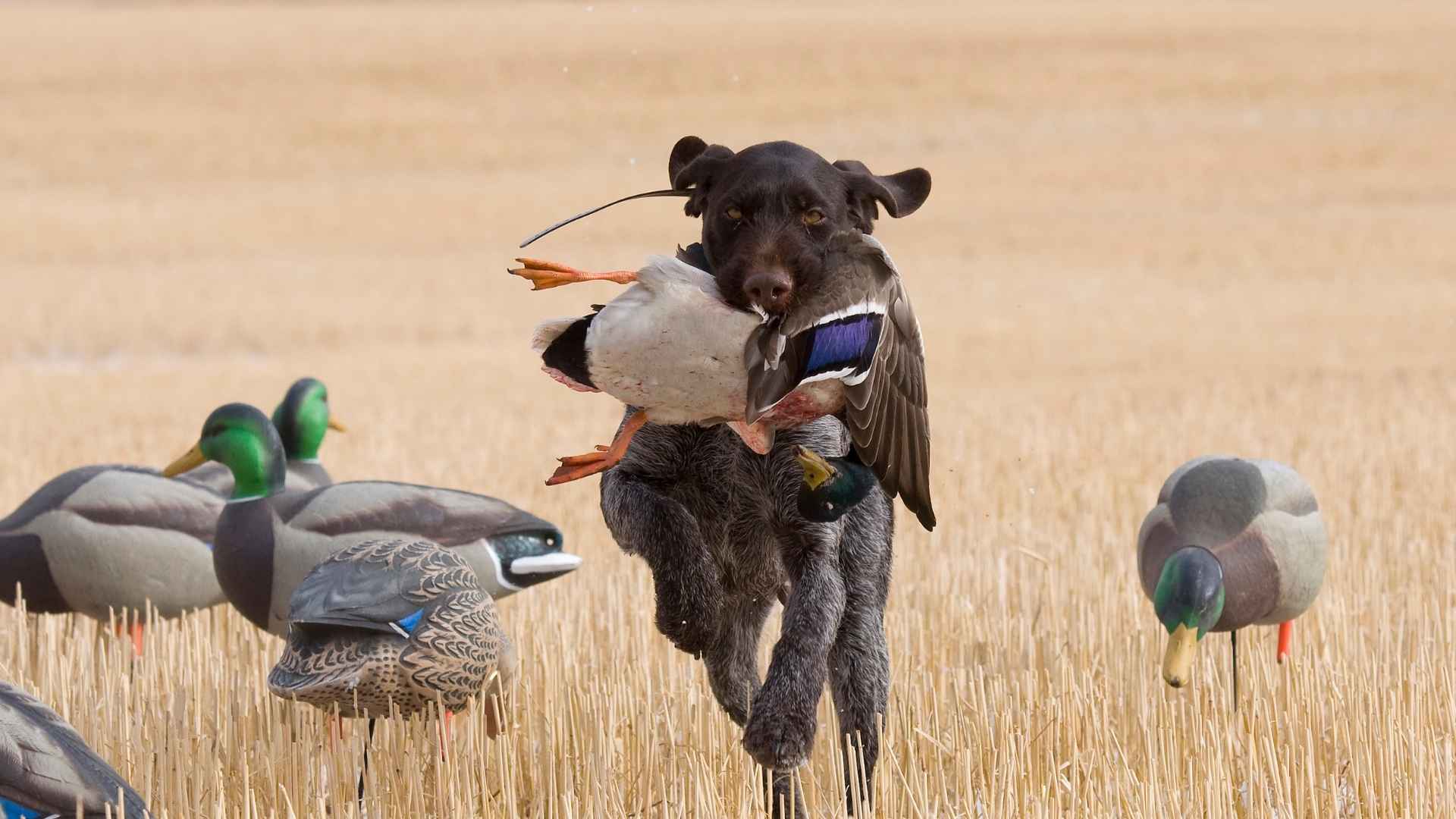When it comes to duck hunting, the right dog can make all the difference between a frustrating day in the blind and a successful outing. The best duck hunting dogs are more than just companions; they’re skilled, trainable partners that elevate your waterfowl game. With their sharp noses, boundless energy, and natural love for the water, these dogs retrieve birds from the toughest spots and navigate challenging terrain that human hunters can’t.
Duck hunting demands a unique set of traits: obedience, intelligence, endurance, and a strong retrieving instinct. Not all dogs are built for the task, but a select group of breeds is specifically suited for the waterfowl hunter’s lifestyle. These dogs thrive in wet environments, boast water-resistant coats, and are eager to work no matter the conditions.
If you’re ready to find your next hunting partner, this article breaks down the top duck hunting dog breeds. From seasoned retrievers to eager first-timers, these dogs are ready to hit the water and bring back your birds with enthusiasm.
Best Duck Hunting Dog Breeds
1. Labrador Retriever
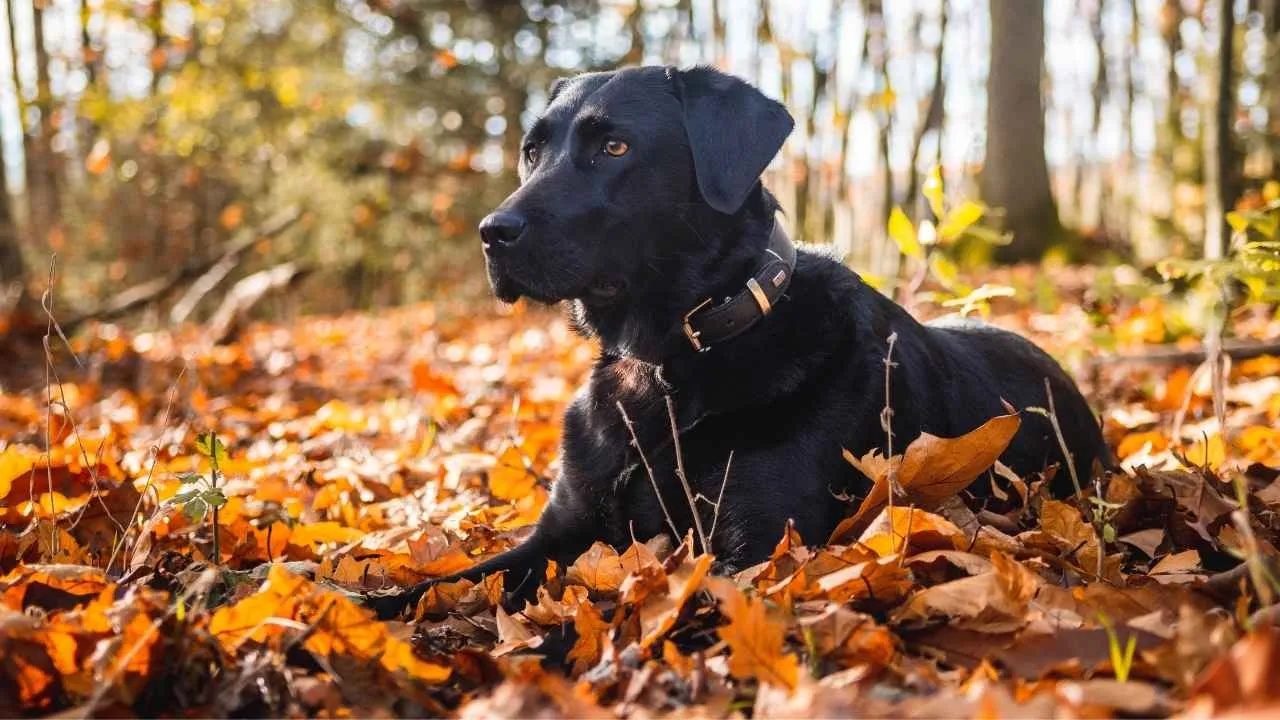
The Labrador Retriever combines intelligence, strength, and a natural affinity for water. Purina states that the Labrador Retriever’s sociable and smart nature likely contributes to its status as the most popular dog in America. With webbed paws, a dense water-resistant coat, and a powerful tail that acts like a rudder, Labs are built for retrieving game from lakes, marshes, and icy waters.
Their calm demeanor and eager-to-please attitude also make them ideal family dogs, balancing their hardworking spirit with a loving presence at home. Whether retrieving fallen birds or accompanying you on long hunts, Labs offer reliability, stamina, and unwavering enthusiasm.

Training
Training is essential for bringing out the Labrador’s full potential in the field. Thanks to their intelligence and social nature, Labs respond extremely well to consistent training sessions. Early socialization and recall training are key, especially given their high energy and strong retrieving instincts.
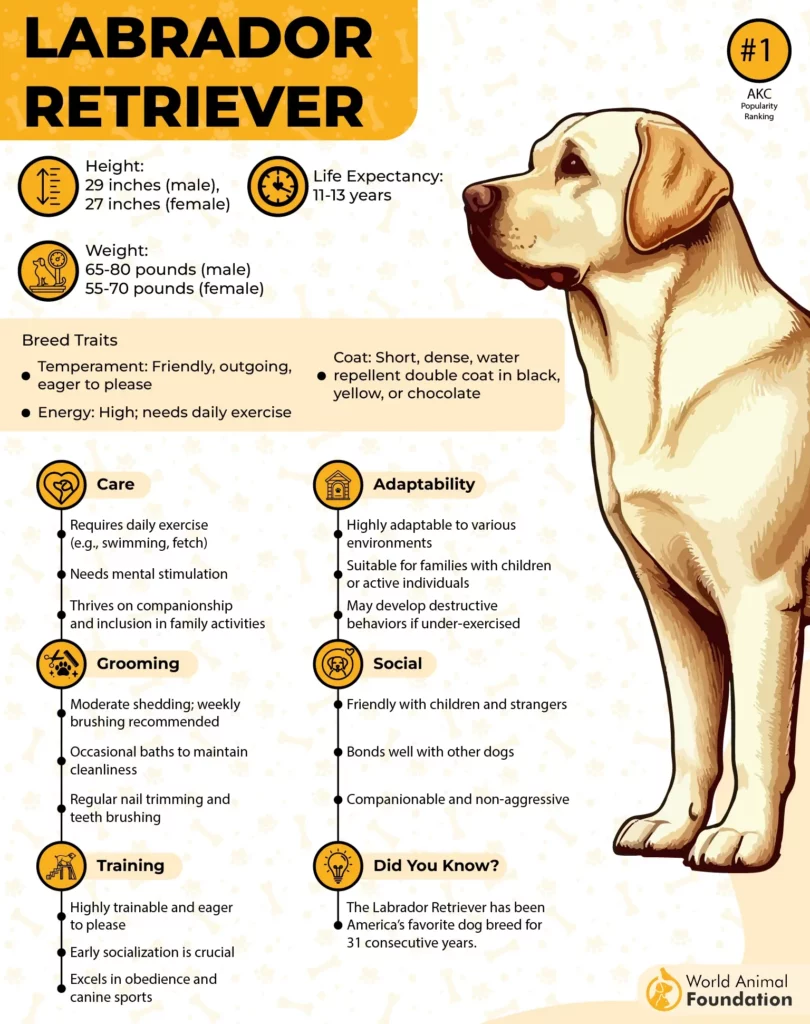
Incorporating games and mental challenges keeps them focused and prevents destructive boredom behaviors.
Fun Fact: Labs have been the American Kennel Club’s most popular breed in the U.S. since 1991, thanks to their friendly nature and unmatched versatility.
2. Chesapeake Bay Retriever
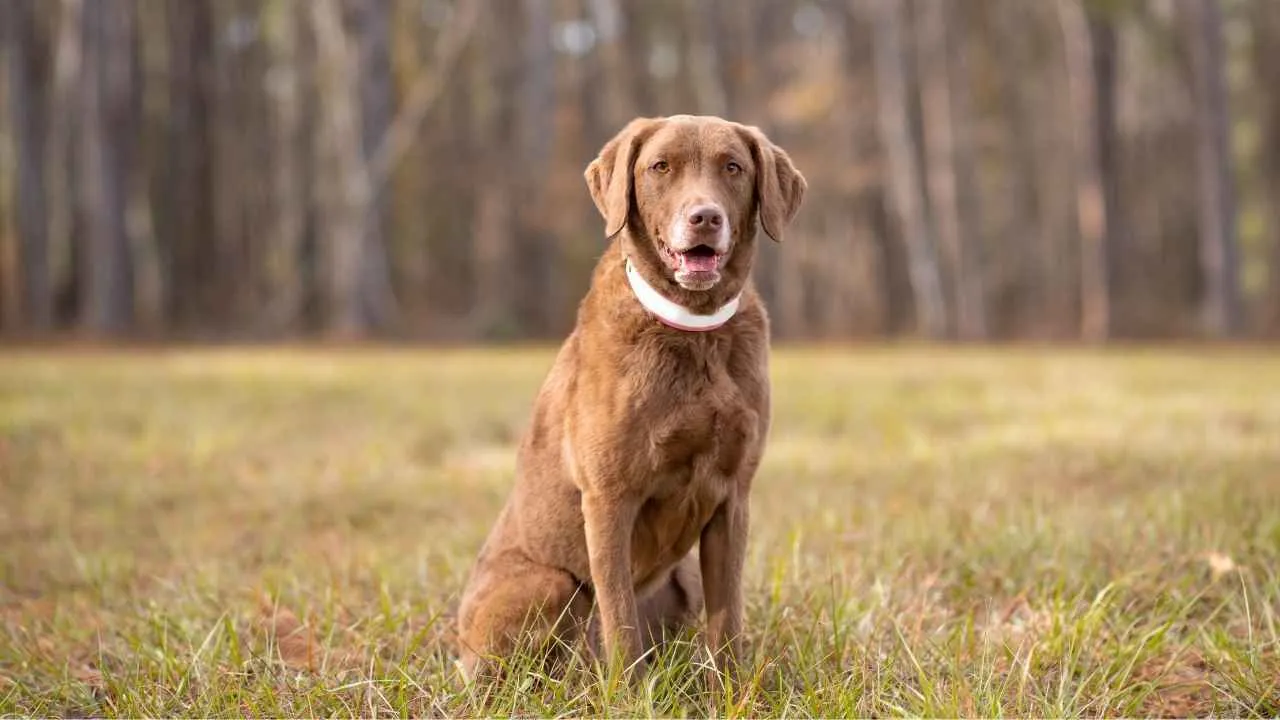
The Chesapeake Bay Retriever is a powerhouse in the world of duck hunting dogs. Originally developed to retrieve waterfowl from the icy waters of the Chesapeake Bay, this breed is built for rugged environments and tough conditions.
With a muscular frame, thick water-resistant double coat, and a distinctive rudder-like tail, the Chessie is perfectly equipped for cold, wet hunting terrains. Loyal and driven, these dogs don’t just retrieve; they excel, demonstrating tireless stamina, courage, and focus in the field.
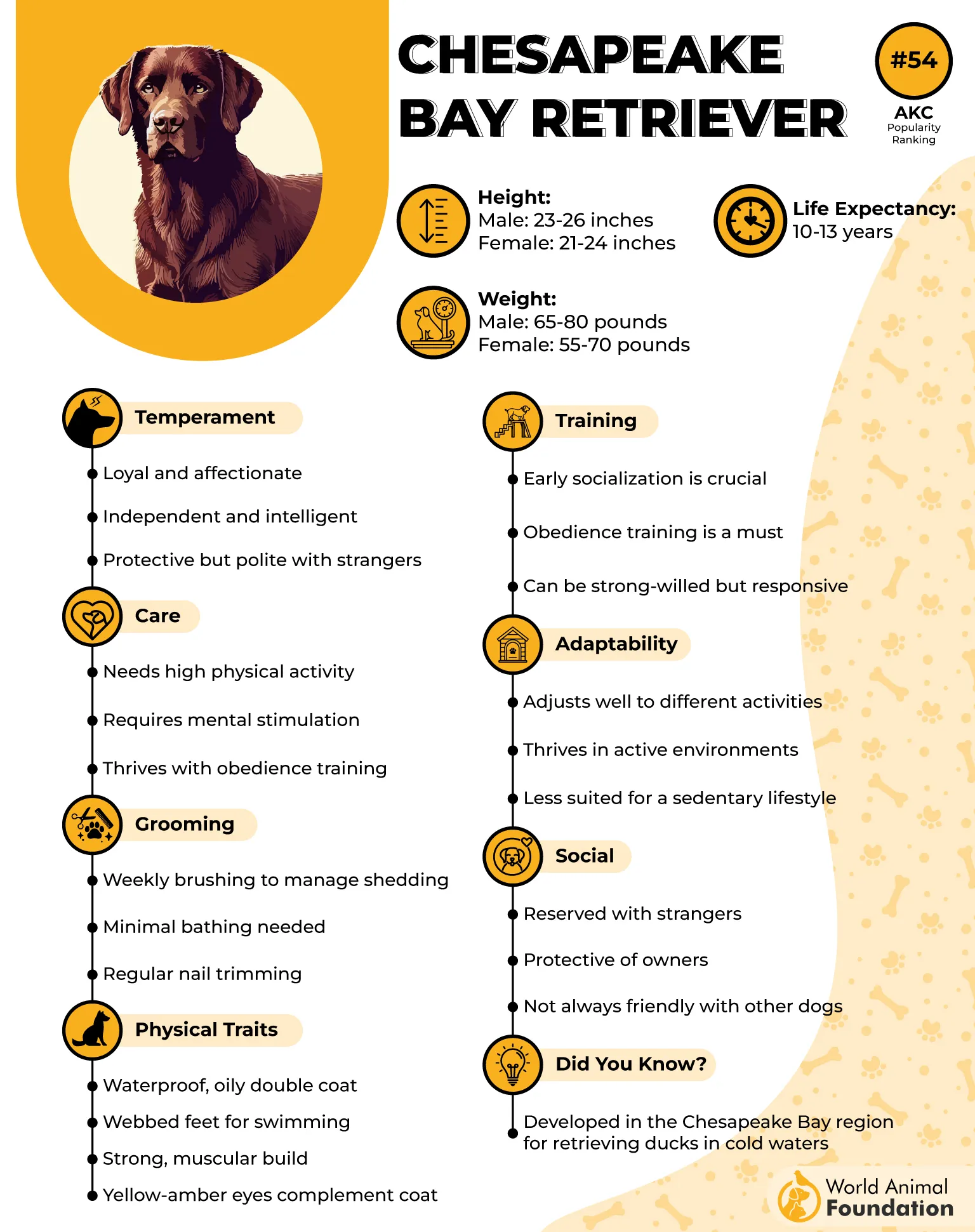
Training
Training is essential for a Chesapeake Bay Retriever, not only to harness their natural retrieving instincts but also to cultivate control and responsiveness. Early socialization and obedience classes are highly recommended. According to the AKC, a properly socialized Chesapeake Bay Retriever is a self-assured companion and an exceptional hunting partner.
These intelligent and energetic dogs crave structure and purpose, making them excellent candidates for fieldwork, agility, and tracking exercises. Without adequate mental and physical engagement, they may become bored or independent.
Fun Fact: The Chesapeake Bay Retriever’s unique “deadgrass” coat color, ranging from faded tan to dull straw, helps them blend seamlessly into marshy landscapes during hunts.
3. Golden Retriever

Originally bred for retrieving game, Goldens combine natural hunting ability with a famously sweet temperament, making them ideal both in the blind and at home. PetMD notes that Golden Retrievers are recognized for their dense, shiny golden fur that resists water. Their love for water, strong swimming skills, and excellent scent detection allow them to retrieve ducks with ease.
Thanks to their “soft mouth,” they carry game without causing damage, an essential trait for waterfowl hunters. With their friendly nature, Golden Retrievers also make fantastic family pets, getting along well with children, other animals, and even strangers.

Training
Training a Golden Retriever is a rewarding experience, especially for first-time handlers. These eager-to-please dogs thrive on positive reinforcement and pick up commands quickly. Their intelligence and responsiveness make them a natural fit for obedience work and advanced retrieving drills.
Early socialization, consistent structure, and plenty of mental stimulation help ensure well-rounded and reliable hunting buddies. Goldens also benefit from daily physical activity to stay sharp and prevent boredom-related behaviors.
Fun Fact: Golden Retrievers are known for their soft mouths, a trait that allows them to retrieve birds without damaging the game, making them ideal for duck hunting.
4. German Shorthaired Pointer
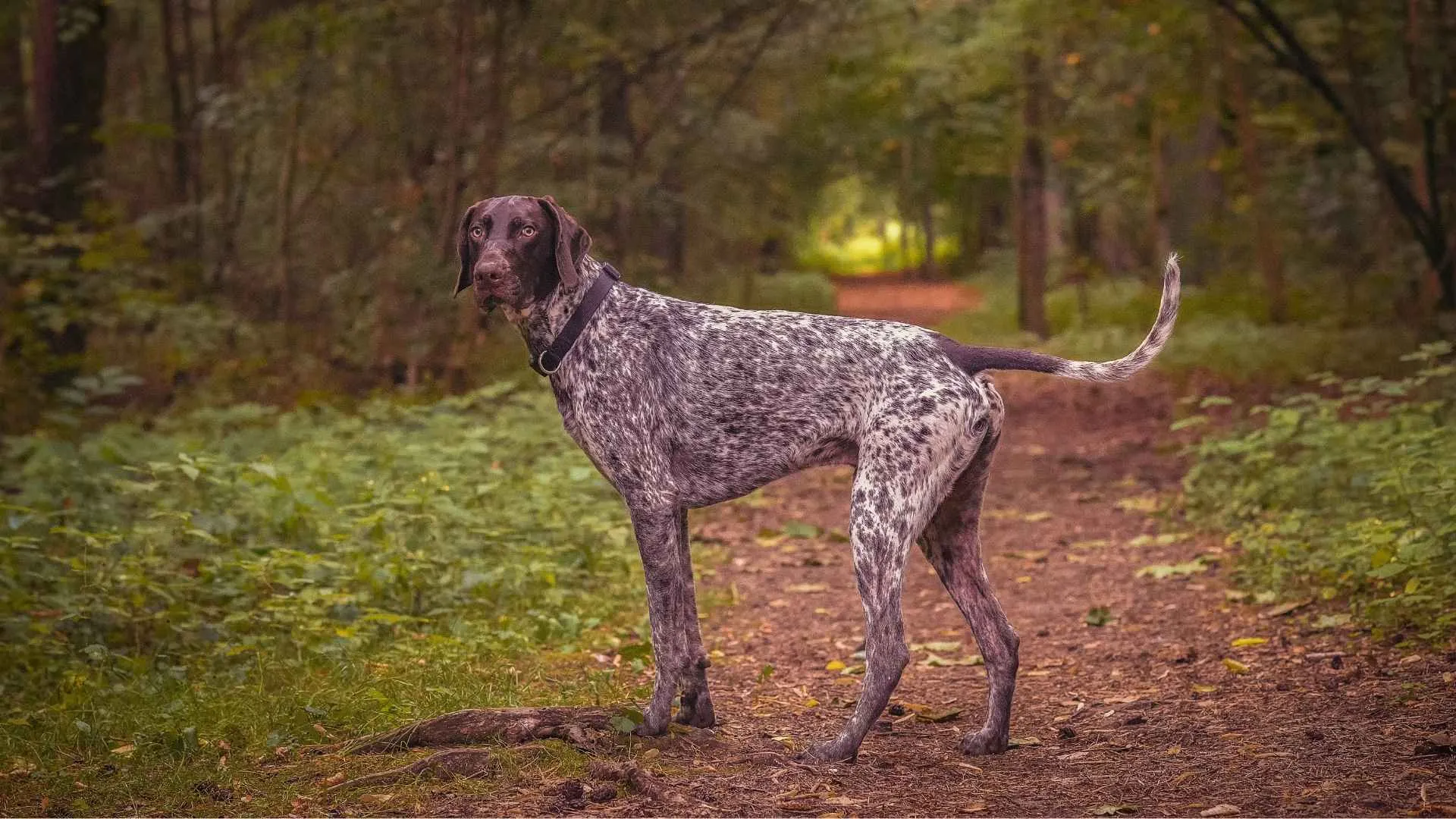
The German Shorthaired Pointer (GSP) is a dynamic and highly versatile breed that excels at duck hunting. Hills Pet describes the German Shorthaired Pointer as a well-defined, athletic dog with a sharp and impressive profile. Originally developed in 19th-century Germany, this all-purpose hunting dog is built for both land and water retrieval.
With a sleek, muscular frame, webbed feet, and a water-resistant coat, the GSP is well-suited to marshy terrains and long, demanding hunts. Their keen noses and strong prey drive make them excellent trackers, while their friendly, eager-to-please nature makes them beloved family companions. However, their high energy levels mean they need plenty of exercise and mental stimulation to stay content and well-behaved.
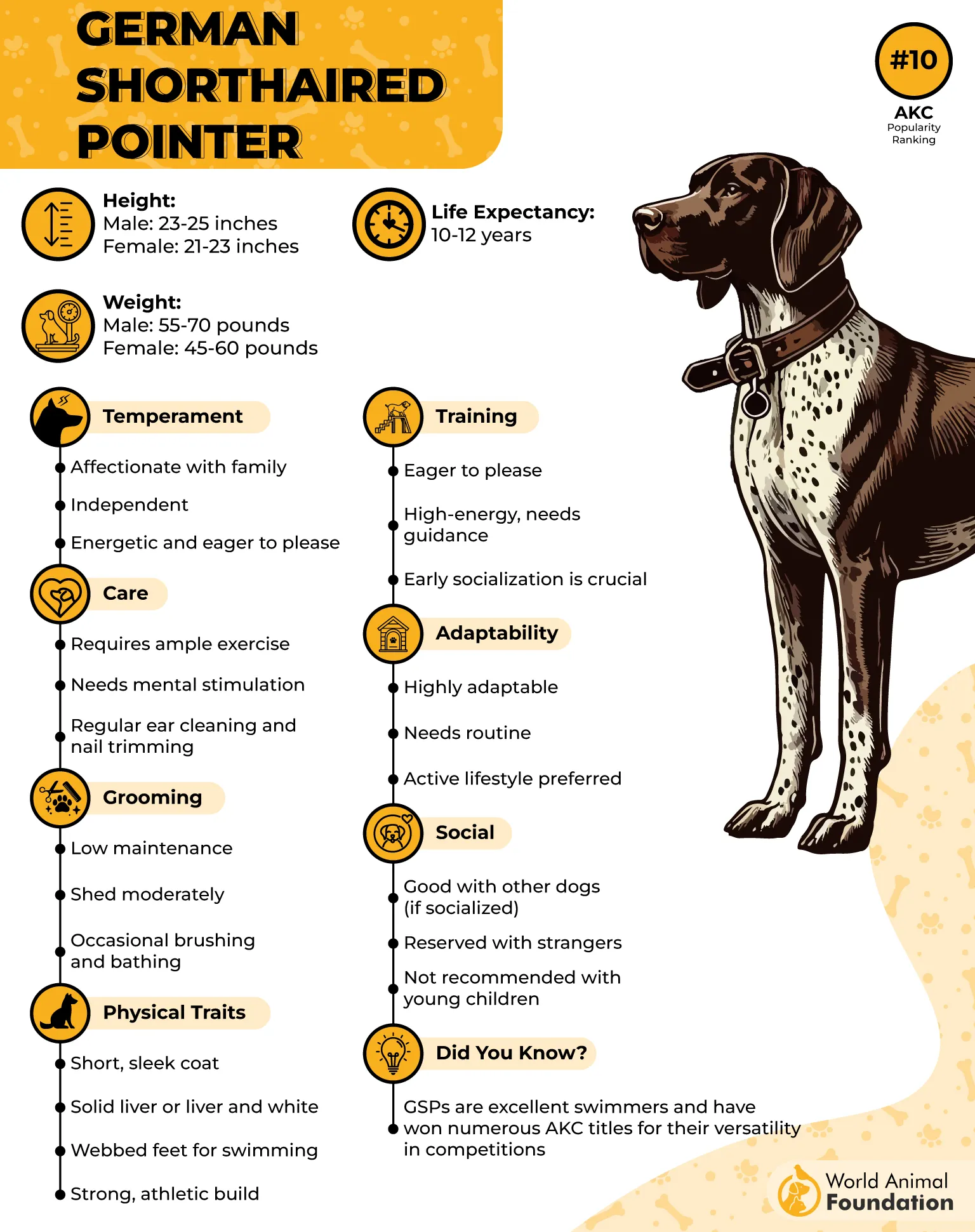
Training
Early and consistent training is crucial for German Shorthaired Pointers. Puppy training classes and structured socialization lay a strong foundation for reliable obedience and effective retrieving. Their high energy and curiosity require daily outlets; without a purpose or routine, GSPs can become destructive. Channeling their enthusiasm through regular drills and hunting exercises keeps them sharp, focused, and happy in the field.
Fun Fact: The German Shorthaired Pointer ranks as the ninth most popular breed in the U.S. according to the American Kennel Club, thanks to its hunting skills and affectionate personality.
5. Irish Water Spaniel
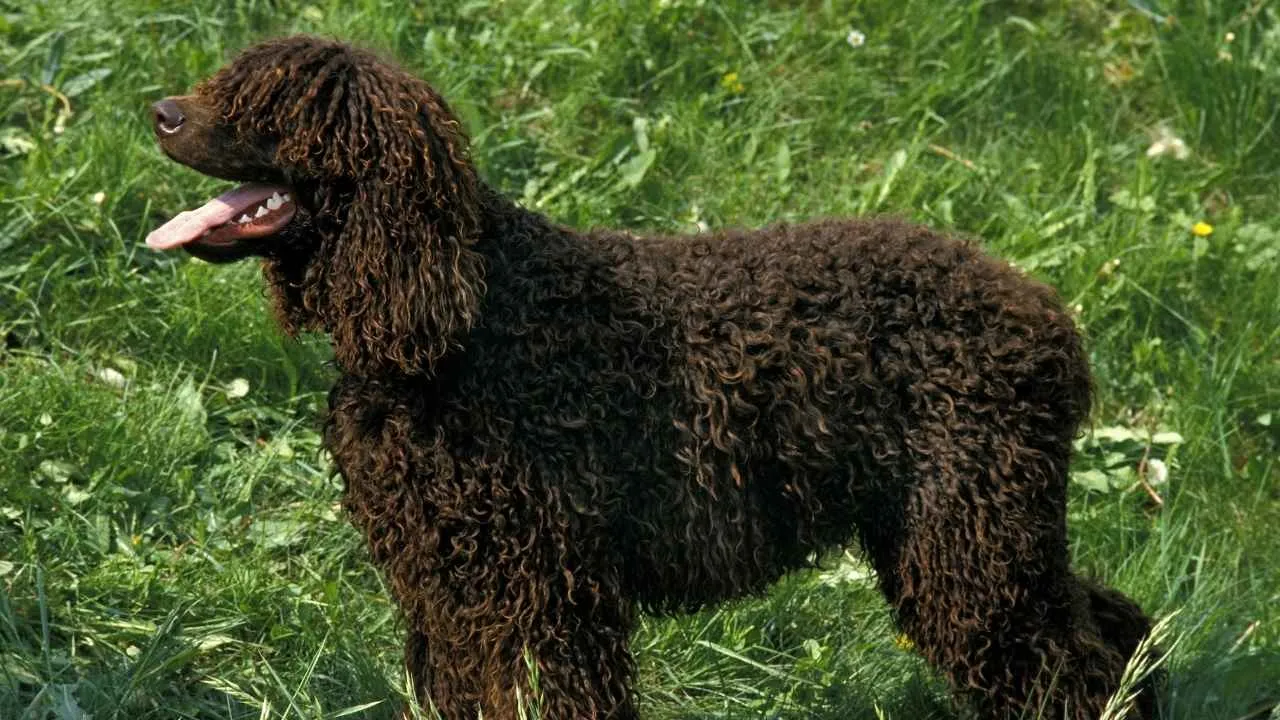
The Irish Water Spaniel blends intelligence, agility, and charm into one uniquely curly-coated package. Britannica notes that the Irish Water Spaniel is a sporting breed created in Ireland during the 1830s for game retrieval, descending from other curly-coated water retrievers. With its liver-colored, water-resistant curls and signature “rat tail,” this breed is built for aquatic adventures.
Historically, one of the oldest and largest spaniel breeds, the Irish Water Spaniel thrives in wet, marshy environments where its coat keeps it warm and protected during long retrieves. Their stamina and playful personality make them well-suited for hunters who want both a capable retriever and a devoted companion at home.
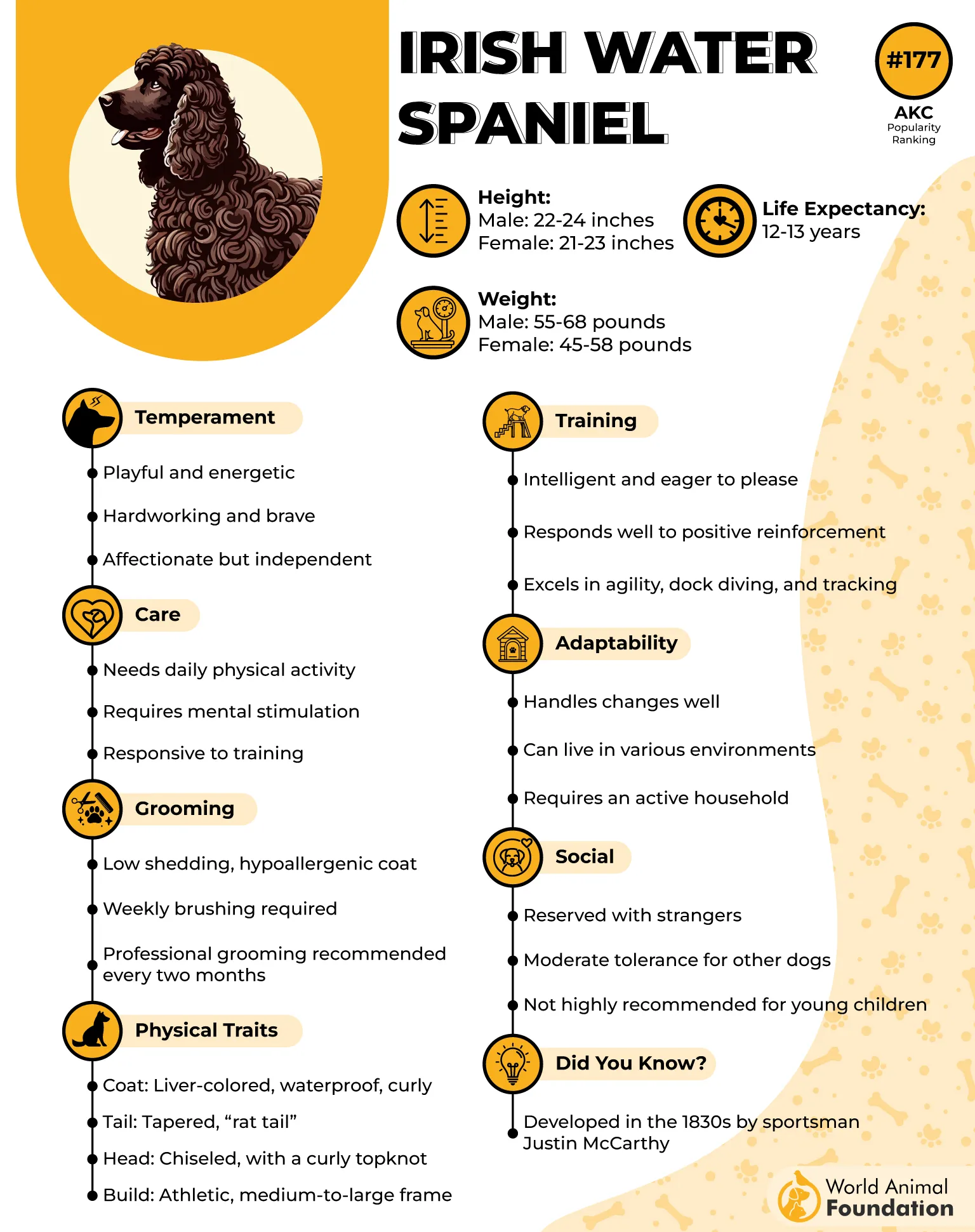
Training
Training the Irish Water Spaniel is typically a smooth process thanks to its high intelligence and desire to please. These dogs excel when given engaging tasks and thrive in environments that provide both mental and physical stimulation.
Reward-based methods yield the best results, especially when sessions are kept fun and varied. Their sensitive nature means harsh training techniques can be counterproductive, so patience and consistency are key to developing a reliable duck dog.
Fun Fact: The Irish Water Spaniel was officially recognized by the American Kennel Club in 1878, making it one of the oldest registered spaniel breeds.
6. American Water Spaniel
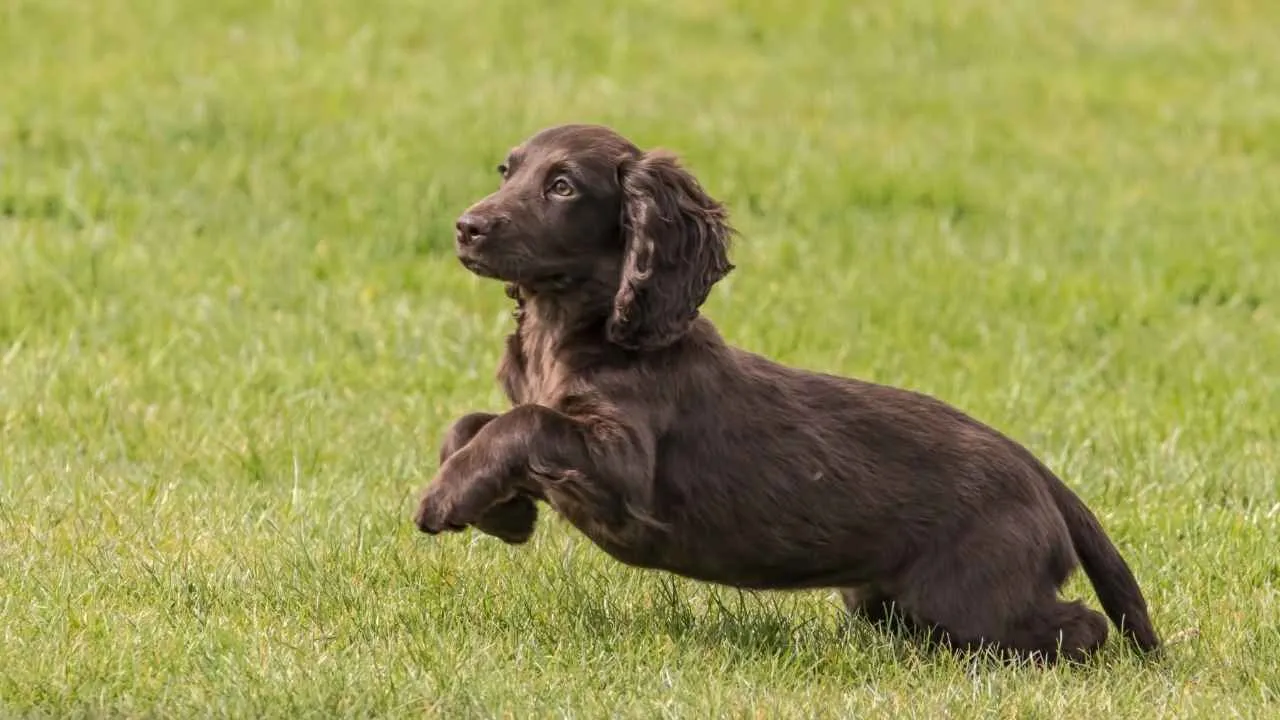
The American Water Spaniel is a compact, versatile hunter built for both land and water retrieval. Originally bred in the Midwest for hunting from small boats, this breed is known for its stamina, adaptability, and natural retrieving instincts.
With a dense, water-resistant coat and an innate love of swimming, the American Water Spaniel thrives in wet conditions. Their affectionate temperament and loyalty also make them great family pets, blending performance in the field with warmth at home.
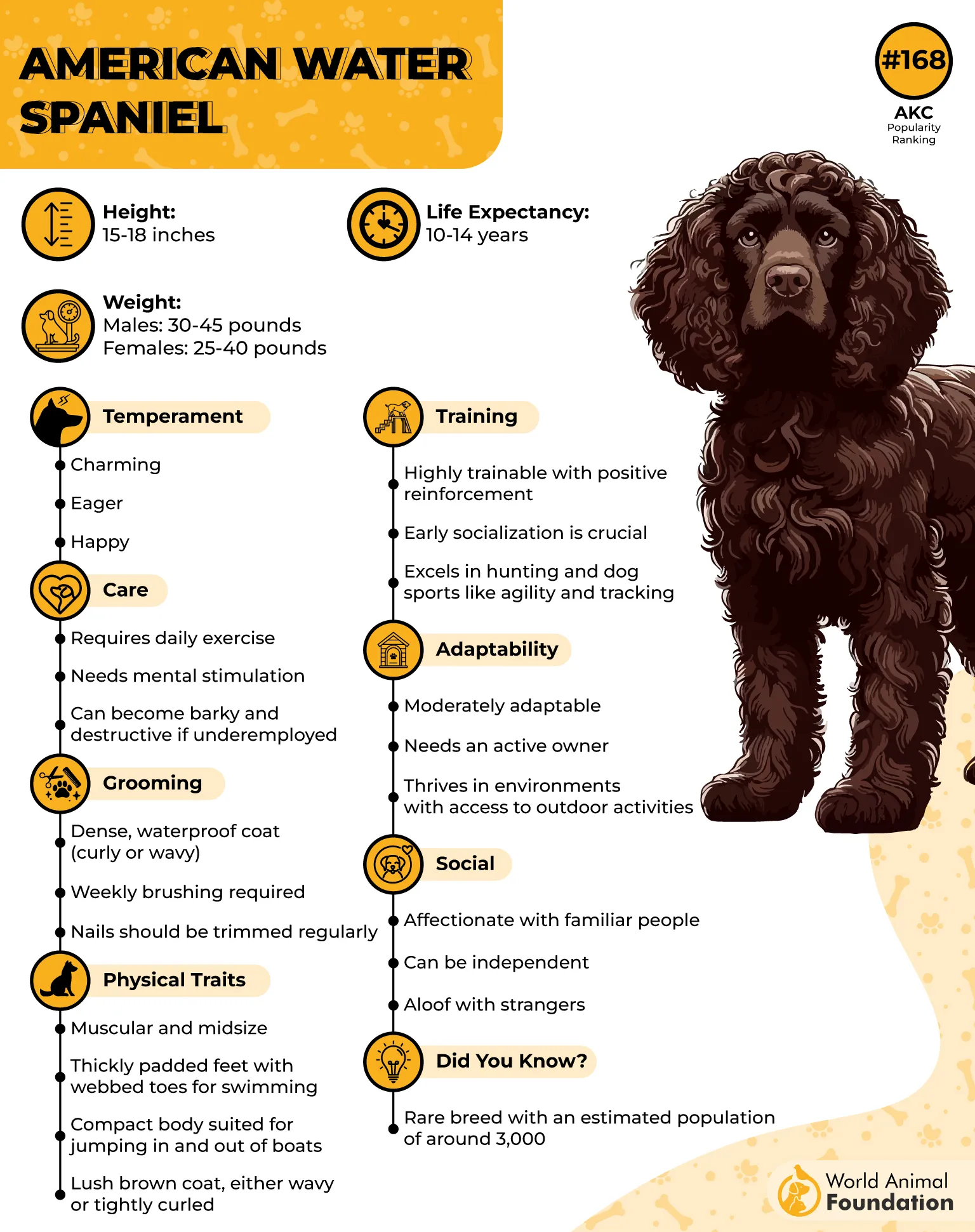
Training
Training an American Water Spaniel is generally straightforward thanks to their intelligence and eagerness to please. However, they can display a streak of independence, so it’s important to use consistent, positive reinforcement techniques.
Keeping sessions engaging and rewarding will help maintain their interest and responsiveness, particularly in demanding hunting situations. Early socialization and regular practice in both land and water environments will sharpen their retrieving skills and build obedience.
Fun Fact: The American Water Spaniel was bred to hunt from small boats in the Midwest and is one of the few breeds developed entirely in the United States for this purpose.
7. Curly-Coated Retriever
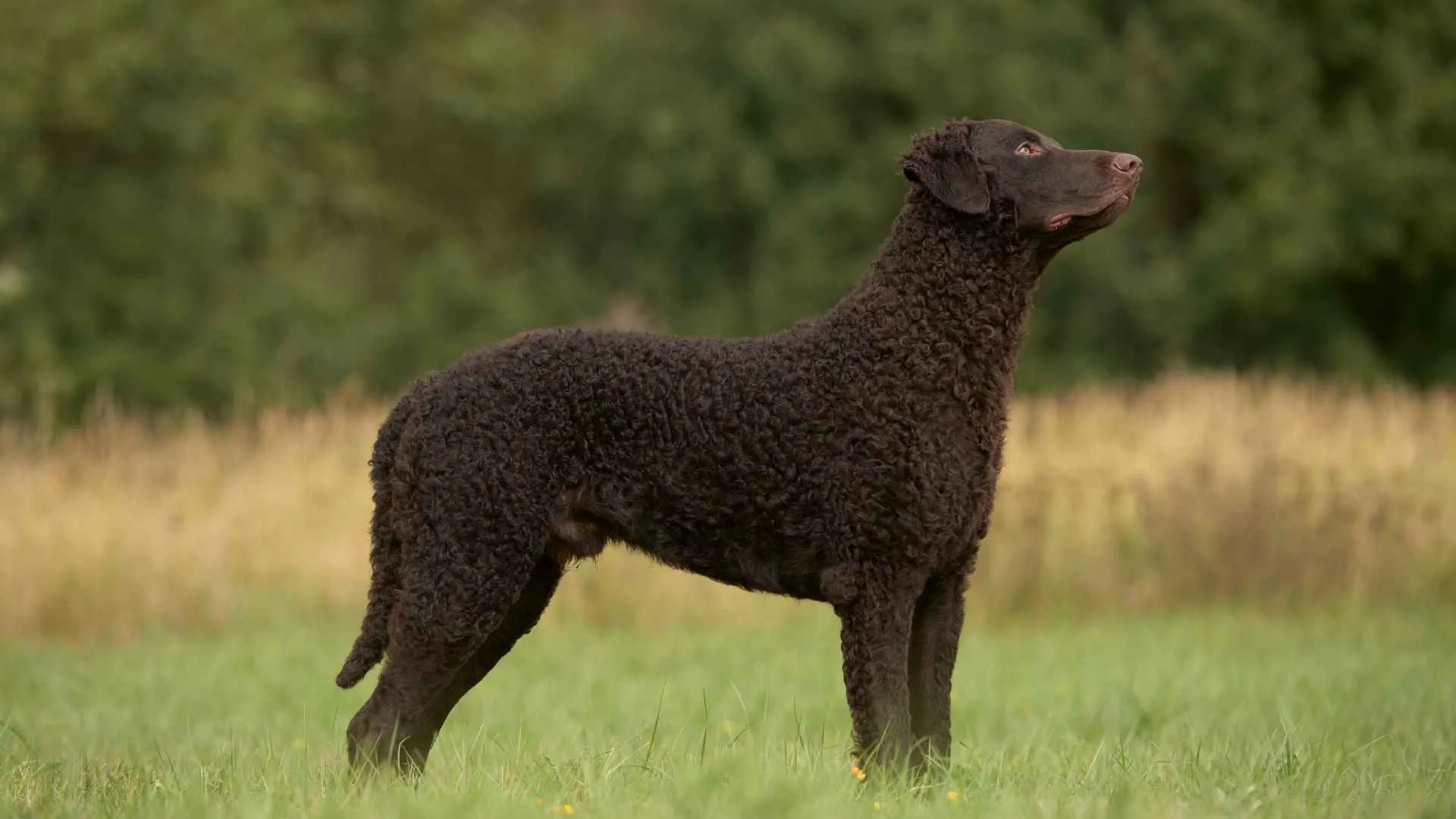
The Curly-Coated Retriever is a bold, hardworking duck dog with a unique look and an unshakeable work ethic. Its dense, tightly curled coat is not just for show; it’s a built-in suit of armor against cold water and harsh conditions, making this breed perfect for long, late-season hunts.
These dogs are muscular, agile, and packed with endurance, ready to retrieve waterfowl, upland birds, or even small game without hesitation. They’re also known for their independence, which can be both a strength and a challenge in the field.
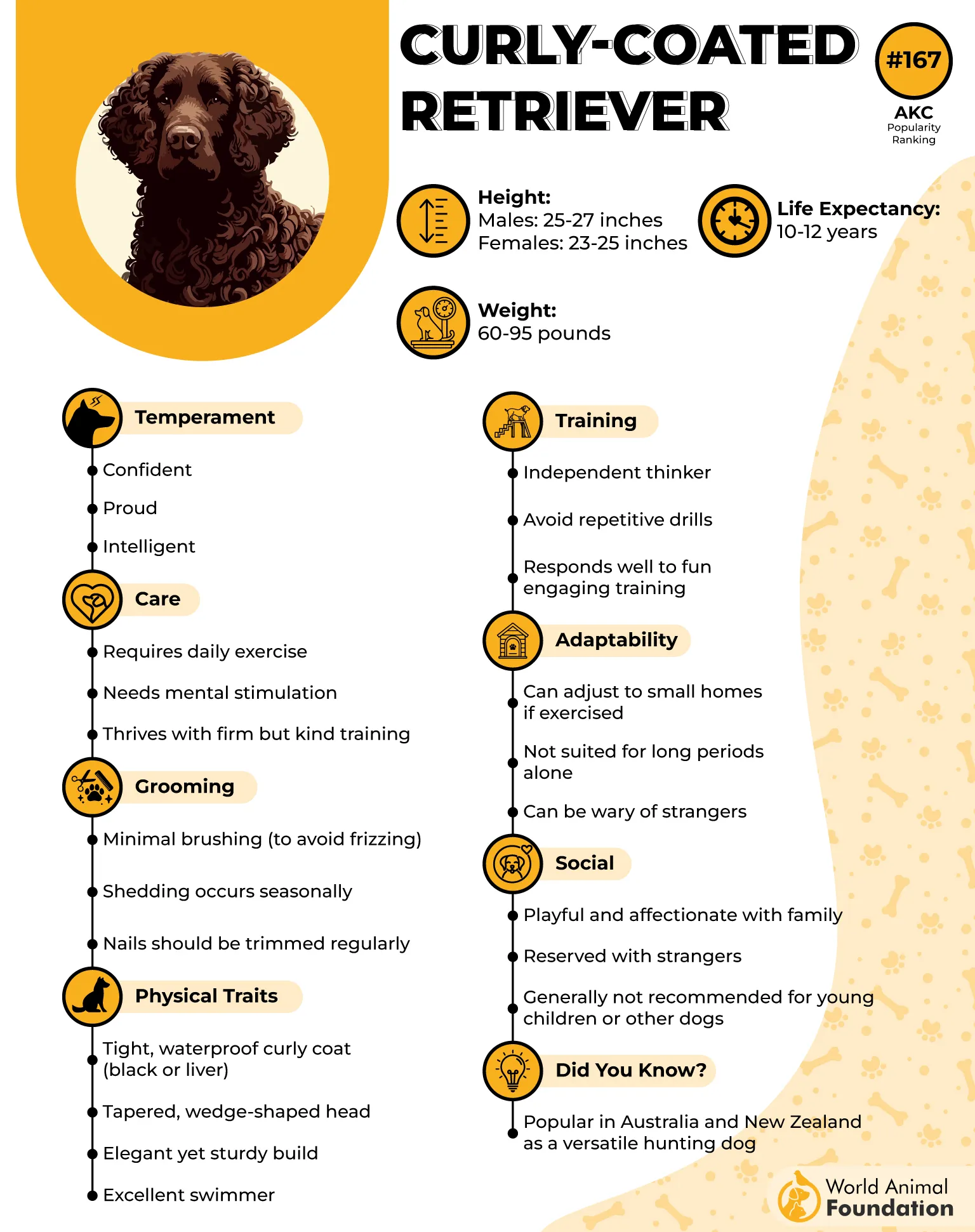
Training
Training a Curly-Coated Retriever requires a thoughtful, balanced approach. Too much pressure or harshness may cause resistance, while unclear or overly soft instructions can lead to disinterest. They’re intelligent dogs that thrive when learning is engaging and fun.
Avoid repetitive drills; they can get bored easily, and instead aim for varied, motivating sessions that tap into their love for retrieving. First-time owners should consider joining a field training group for guidance and support.
Fun Fact: Despite their strong hunting instincts, Curlies are just as willing to retrieve a rabbit or an upland bird as they are a duck, showcasing their versatility in the field.
Conclusion
When it comes to hunting waterfowl, choosing the right canine partner can elevate both the efficiency and enjoyment of your outdoor experience. Breeds like the Labrador Retriever and American Water Spaniel are time-tested favorites, valued for their intelligence, obedience, and tireless energy in the field. Many of these dogs not only retrieve downed birds from difficult terrain but also form deep bonds with their handlers, making them loyal companions both during and after the hunt.
Other top contenders include the Flat-Coated Retriever and the Boykin Spaniel, the latter originally developed in South Carolina for hunting ducks in swampy environments. Even the Nova Scotia Duck Tolling Retriever, known for luring and retrieving waterfowl, is a rising star in the sport. No matter the breed, finding your next hunting companion from a reputable breeder ensures you get a well-tempered, capable dog ready for the marshes. With the right training and environment, these breeds excel in every aspect of waterfowl hunting.


